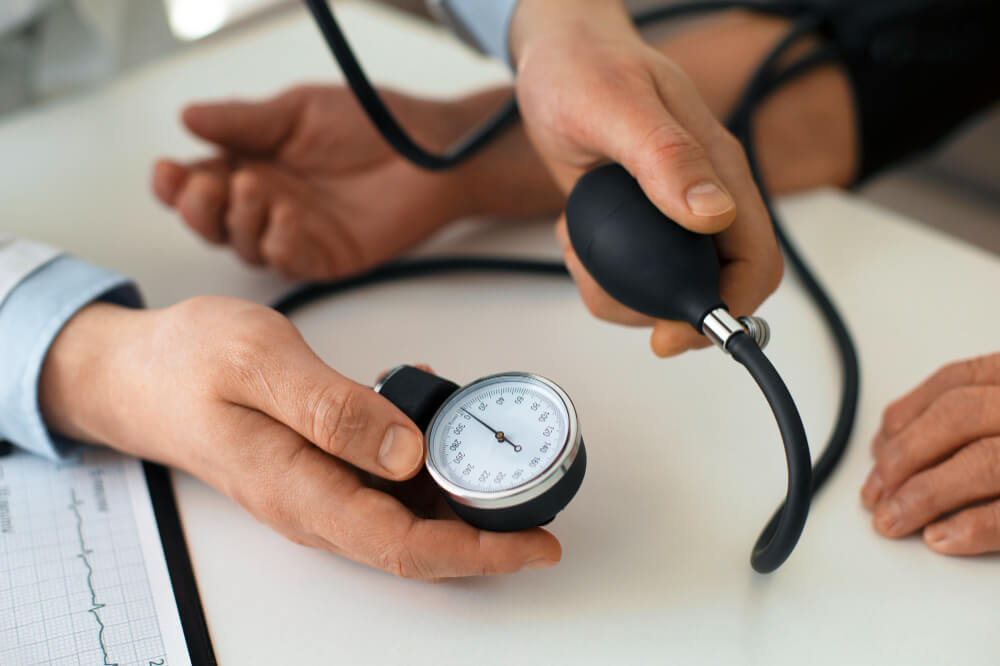High Blood Pressure Treatment: Lower Your Numbers & Live Well
High blood pressure, also known as hypertension, is a prevalent health concern affecting millions worldwide. Often dubbed the “silent killer” due to the absence of prominent symptoms in the early stages, it significantly increases the risk of heart disease, stroke, kidney disease, and other health complications. The good news? Hypertension is a manageable condition. While lifestyle changes are crucial, exploring modern treatment options empowers you to effectively lower your blood pressure and live a healthier, happier life.

Why Effective Blood Pressure Control Matters
Blood pressure is the force exerted by blood against your artery walls as your heart pumps. When this pressure consistently remains high, it strains your heart and blood vessels, leading to damage over time.
Here’s why achieving and maintaining healthy blood pressure levels is critical:
- Reduced Risk of Heart Disease: High blood pressure is a major risk factor for heart attacks, angina (chest pain), and heart failure. Lowering blood pressure significantly decreases the risk of these potentially life-threatening events.
- Stroke Prevention: Uncontrolled hypertension can weaken blood vessels, making them more prone to rupture or blockage. This can lead to strokes, causing brain damage and disability.
- Protecting Your Kidneys: High blood pressure can damage the delicate filters in your kidneys, which can lead to kidney failure.
- Improved Overall Health: Maintaining a healthy blood pressure range reduces the strain on your entire cardiovascular system, promoting overall well-being.
From Lifestyle Modifications to Medications: A Multifaceted Approach

The first line of defense in managing high blood pressure often involves lifestyle changes. These modifications promote healthy habits and can significantly lower blood pressure in many cases. Here are some key strategies:
- Maintaining a Healthy Weight: Excess weight puts extra strain on your heart. Losing even a modest amount of weight can significantly improve blood pressure control.
- Adopting a Heart-Healthy Diet: The DASH (Dietary Approaches to Stop Hypertension) diet emphasizes fruits, vegetables, whole grains, and low-fat dairy products, while limiting saturated and unhealthy fats, sodium, and added sugars.
- Reducing Sodium Intake: High sodium intake can raise blood pressure. Aim to limit sodium intake to less than 2,300 milligrams (mg) per day, ideally reaching for 1,500 mg or less.
- Regular Physical Activity: Engaging in regular physical activity, such as brisk walking, swimming, or cycling, for at least 30 minutes most days of the week, helps lower blood pressure.
- Limiting Alcohol Consumption: Excessive alcohol consumption can raise blood pressure. Moderation is key, or consider abstinence if you struggle to limit alcohol intake.
- Managing Stress: Chronic stress can contribute to high blood pressure. Practice stress-management techniques like yoga, meditation, or deep breathing exercises.
- Quitting Smoking: Smoking damages blood vessels and increases blood pressure. Quitting smoking is one of the most impactful ways to improve your heart health.
However, lifestyle changes alone may not be enough for everyone to achieve optimal blood pressure control. In such cases, your healthcare provider may recommend incorporating medications alongside lifestyle modifications.
Understanding Modern Medication Options for Hypertension
Several classes of medications are available to treat hypertension, each working in a different way to lower blood pressure. Here’s a breakdown of some common types:
- Angiotensin-Converting Enzyme (ACE) Inhibitors: These medications prevent the body from producing a substance that constricts blood vessels, leading to relaxation and lower blood pressure.
- Angiotensin II Receptor Blockers (ARBs): Similar to ACE inhibitors, ARBs block the action of angiotensin II, a hormone that constricts blood vessels.
- Calcium Channel Blockers: These medications relax the muscles in the walls of your blood vessels, allowing for easier blood flow and lower blood pressure.
- Diuretics: Often referred to as “water pills,” diuretics help your kidneys remove excess fluid and sodium from the body, reducing blood volume and lowering blood pressure.
- Beta-blockers: These medications slow down your heart rate and reduce the force of your heart contractions, lowering blood pressure.
Your healthcare provider will determine the most appropriate medication or combination of medications based on your individual needs, health history, and potential side effects.
Deciphering Side Effects and Medication Adherence:
While medications are effective in lowering blood pressure, they can sometimes cause side effects. These may include dizziness, fatigue, headaches, or dry mouth. It’s crucial to communicate openly with your doctor about any side effects you experience. They may adjust your medication dosage or recommend a different medication altogether.
Medication adherence – consistently taking your medications as prescribed – is critical for effective blood pressure control. Develop a routine for taking your medications, and consider using pill organizers or reminders to stay on track.
